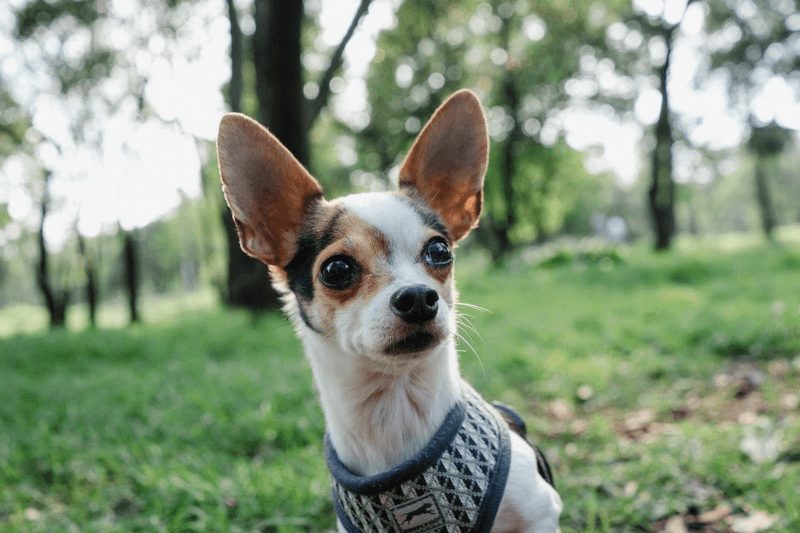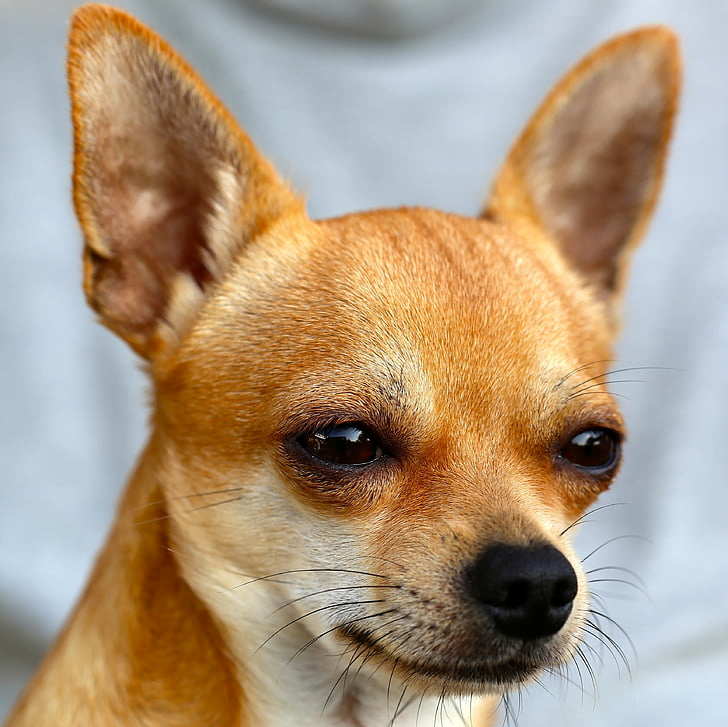Chihuahuas, the smallest dog breed, pack a lot of personality into a tiny frame. Originating in Mexico, these dogs are known for their loyalty and spunky nature, making them popular pets worldwide. Despite their size, Chihuahuas are often described as having a big-dog attitude, an attribute that endears them to many but also highlights the importance of proper training and socialization. Their small size makes them ideal for apartment living, though they still require regular exercise and mental stimulation to stay healthy and happy. This blog post aims to explore the unique characteristics of Chihuahuas, offering insights into their care, temperament, and why they continue to capture the hearts of dog lovers everywhere.
Key Takeaways
- Chihuahuas are a unique breed with specific needs, understanding their characteristics is crucial for a harmonious living environment.
- Regular vet check-ups and awareness of common health issues in Chihuahuas can significantly improve their quality of life.
- Creating a comfortable and safe living space for a Chihuahua can enhance their well-being and strengthen your bond with them.
- Seeking advice from reputable breeders and considering adoption can lead to a responsible and informed decision when bringing a Chihuahua into your home.
- Incorporating these insights into your approach to caring for a Chihuahua will ensure a happier and healthier life for your furry friend.
Breed Overview
History
Chihuahuas trace their roots back to ancient Mexico, where they were highly valued by the Toltec civilization. These dogs are believed to be descendants of the Techichi, a companion dog favored by the Toltecs that was later adopted by the Aztecs. In these cultures, Chihuahuas were not just pets but also held spiritual significance, often buried with their owners to guide them in the afterlife.
The breed’s journey to global recognition began in the 19th century when Americans visiting Mexico brought them back to the United States. Their popularity soared in Europe and America, catching the eyes of many, including famous historical figures who owned Chihuahuas. This solidified their status as a beloved companion dog across continents.
Physical Characteristics
Chihuahuas are known for their distinctive apple-shaped heads and large, expressive eyes which contribute to their unique appearance. They come in two coat varieties: smooth and long-haired. Despite their variety in coat types, all Chihuahuas share a common trait of being exceptionally small, typically weighing under 6 pounds. This makes them one of the smallest dog breeds globally.
Their size is a defining characteristic, but it doesn’t detract from their boldness or charm. The breed’s tiny stature is complemented by an erect posture and alert expression, making them both adorable and dignified.
Personality and Temperament
Chihuahuas are fiercely loyal companions that form strong bonds with their owners. Their affectionate nature makes them ideal pets for those looking for a devoted friend. Despite their diminutive size, they possess a lively spirit and an alert demeanor that makes them excellent watchdogs; they’re always ready to protect their home.
However, potential owners should be aware of the “small dog syndrome.” Without proper training and socialization, Chihuahuas can develop a tendency towards stubbornness and aggression towards other dogs. It’s crucial for owners to establish clear boundaries and provide consistent training from an early age.

Health And Care
Common Health Issues
Chihuahuas, while known for their spirited personality, face several health challenges. Dental problems are prevalent due to their small mouths. Regular dental care is essential. Heart issues and patellar luxation also affect this breed. These conditions can impact a Chihuahua’s quality of life significantly.
It’s crucial for owners to schedule regular veterinary check-ups. These visits help catch and manage health issues early. Keeping a Chihuahua at a healthy weight is another vital step. It prevents many health concerns from worsening.
Dietary Needs
Feeding Chihuahuas requires attention to detail. They thrive on high-quality, breed-specific food that meets their unique nutritional needs. Portion control is critical in avoiding obesity, a common issue in small breeds.
Owners should seek advice from a veterinarian for personalized dietary plans. This is especially important for Chihuahuas with existing health problems. A tailored diet can make a significant difference in managing these issues.
Exercise Requirements
Despite their petite size, Chihuahuas need regular exercise to maintain their health and happiness. Short walks and playtime sessions are perfect activities for them. However, it’s important to avoid overexerting these tiny dogs as they can experience breathing difficulties.
Regular exercise helps prevent obesity and keeps their mind stimulated. It’s a key part of caring for a Chihuahua’s overall well-being.
Grooming
Grooming varies between the two types of Chihuahuas – smooth and long-haired. Both require regular brushing to keep their coat in good condition. Dental care and nail trimming are also essential parts of their grooming routine.
Ear cleaning is crucial to prevent infections. Owners should check regularly for any signs of trouble. Proper grooming not only keeps Chihuahuas looking their best but also supports their health by preventing skin and ear infections.
Living with a Chihuahua
Training and Socialization
Early socialization is key for Chihuahuas. It helps them become well-adjusted adults. Without it, they may become timid or aggressive. Start socializing them as puppies by exposing them to different people, animals, and environments.
Positive reinforcement works best for training these small dogs. Use treats and praise to encourage good behavior. This method strengthens your bond with them too. Remember, their size does not mean they don’t need training. Neglecting this can lead to behavioral issues. So, always be consistent with their training routine.
Environment
Chihuahuas are perfect for apartment living. Their small size makes them ideal for smaller spaces. Yet, they need a warm place to call home. They are sensitive to cold due to their short coats and small bodies.
Creating a safe environment is crucial. Remove toxic plants and small objects that they could swallow. This ensures they stay healthy and out of danger.
Activities They Enjoy
Chihuahuas love interactive games and toys. These keep their minds sharp and bodies active. Consider agility training tailored for small breeds. It’s not only fun but also boosts their confidence.
Dog sports can be a great way for them to burn off energy too. Plus, attending social events with other dogs can improve their sociability skills.

Breeder Advice and Adoption
Choosing a Breeder
When looking for a Chihuahua, finding a reputable breeder is crucial. These breeders conduct thorough health screenings on their dogs and offer health guarantees for the puppies they sell. This step assures you that the puppy you’re bringing home is healthy and genetically sound.
It’s also wise to ask for references from previous customers. This can provide insight into their experience with the breeder and the health and temperament of their dogs. Moreover, visiting the breeder’s facility allows you to observe the living conditions of the puppies and their parents firsthand. Clean, spacious environments indicate well-cared-for animals.
Meeting the puppy’s parents offers valuable information about what to expect in your puppy as it grows. Temperament and health issues can be hereditary, so observing the parents can help predict future traits in your puppy.
Adoption
Adopting a Chihuahua from shelters or rescue organizations is another excellent way to find your new friend. These places often have Chihuahuas and Chihuahua mixes waiting for homes. Adoption has its benefits, especially when choosing adult dogs. It allows you to bypass the demanding puppy stage, offering a clearer picture of the dog’s personality and size.
Adult dogs in shelters are usually assessed for temperament, making it easier to match them with suitable families. When considering adoption, inquire about the dog’s history, health status, and temperament. Shelters often have medical records and behavior assessments available, providing a comprehensive view of the dog’s needs and personality.
Adopting also gives older dogs a second chance at life. Many adult Chihuahuas end up in shelters through no fault of their own and can make wonderful companions.
Top Dog Grooming Tools (Click Here)
Closing Thoughts
Chihuahuas, with their distinct breed characteristics, demand specific health care and living conditions to thrive. They benefit from attentive owners who understand their unique needs, ranging from diet to exercise, and the importance of regular veterinary check-ups. The decision to welcome a Chihuahua into one’s life should come with a commitment to meeting these requirements, ensuring a happy and healthy life for these small but spirited companions.
Before deciding on adoption or purchasing from a breeder, potential Chihuahua owners should thoroughly research and consider all aspects discussed. It’s crucial to approach reputable breeders or adoption centers that prioritize the well-being of these animals. By doing so, one not only supports ethical breeding practices but also increases the chance of bringing home a pet that is a good fit for their lifestyle. Let’s make informed decisions for the love and respect of Chihuahuas.
Frequently Asked Questions
What is the average lifespan of a Chihuahua?
Chihuahuas typically live between 12 to 20 years. Their longevity is influenced by their health, diet, and care.
How often should a Chihuahua visit the vet?
Chihuahuas should have annual check-ups with a veterinarian. More frequent visits may be necessary for puppies, seniors, or those with health issues.
What are common health problems in Chihuahuas?
Common health issues include dental problems, heart disease, and patellar luxation. Regular veterinary care can help manage these conditions.
Can Chihuahuas live comfortably in small apartments?
Yes, Chihuahuas are well-suited for apartment living due to their small size. They require minimal space but do need daily exercise and mental stimulation.
What should I look for when choosing a Chihuahua breeder?
Look for breeders who prioritize health testing and socialization. Reputable breeders will provide health clearances and allow you to meet the puppy’s parents.
Is adopting a Chihuahua preferable to buying one from a breeder?
Adoption is a great option for giving a rescue dog a second chance. Whether adoption or purchasing from a breeder is preferable depends on personal circumstances and preferences.






0 Comments